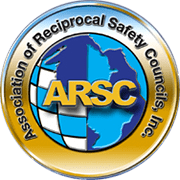By David Womack, Ph.D.
Safety and Health Manager, HSEQ & ARSC Owners Advisory Committee Chair
Medication non-compliance is simply not taking your medications as prescribed. It can lead to unnecessary progression, poor outcomes, disease complications, a lower quality of life, increasing healthcare cost and even premature death. It is estimated that between $100 billion and $300 billion of avoidable healthcare cost in the United States are due to medication non-compliance and non-adherence. And yet we wonder why the cost of our health insurance is going up every year with less coverage and higher deductibles.
The Centers for Disease Control and Prevention (CDC) have published these statistics below concerning medication non-compliance.
- 20% - 30% of new prescriptions are never filled at the pharmacy
- 50% of patients with chronic illnesses such as high blood pressure or diabetes do not take medications as prescribed
- For patients prescribed medications for chronic diseases, after 6 months, the majority take less medication than prescribed or stop the medication altogether on their own
- Only 51% of patients taking medication for high blood pressure continue taking their medication during their long term treatment
There are many reasons that we do not follow medication compliance. A few of these reason with examples are listed below.
- Complexity: “There are so many pills, I can’t keep them straight!”
- High cost: “I can’t afford my medicine so I will only take half a pill today.”
- Difficulty remembering schedules: “I forget to take them.”
- Lack of understanding: “Why do I need them?”
- Not feeling sick: “I feel fine. I don’t need them.” “My blood pressure has been fine.”
- Side effects: “The yellow pills make me feel sick and I heard the blue pills give you liver problems.”
- Embarrassment/Stigma: “I don’t want my friends to know that I’m sick.”
- Depression: “I don’t care…. What’s the point?”
- Health literacy: “I can’t understand these instructions!”
- Belief systems: “My sister took insulin, then had to have her leg amputated.
There are many things a person can do to be more compliant. First and most important is to be honest with your medical provider. If you cannot afford your medication, tell your provider. There are usually many options available. Second is to take your medication at the same time every day. Tie taking your medications with a daily routine like brushing your teeth or getting ready for bed. If you choose mealtime for your routine, you should check if your medications should be taken on a full or empty stomach. Third is to use a pill container and refill it at the same time each week. Some pill containers have sections for multiple doses at different times each day. Lastly, you should know what you are taking and why. You should generate a list of your medications with dosages and have it available in your cell phone or wallet.
If you find yourself having a difficult time staying compliant with your medications, remember that you only have one life to live and ask yourself the following questions:
- How do I want to spend it?
- Do I want to be healthy or sick?
- Do I want to spend my retirement filled with doctor appointments?
- Do I have a living will?
- Do I have a funeral pre-planned?
YOU are the only one responsible for giving yourself the life you want.
